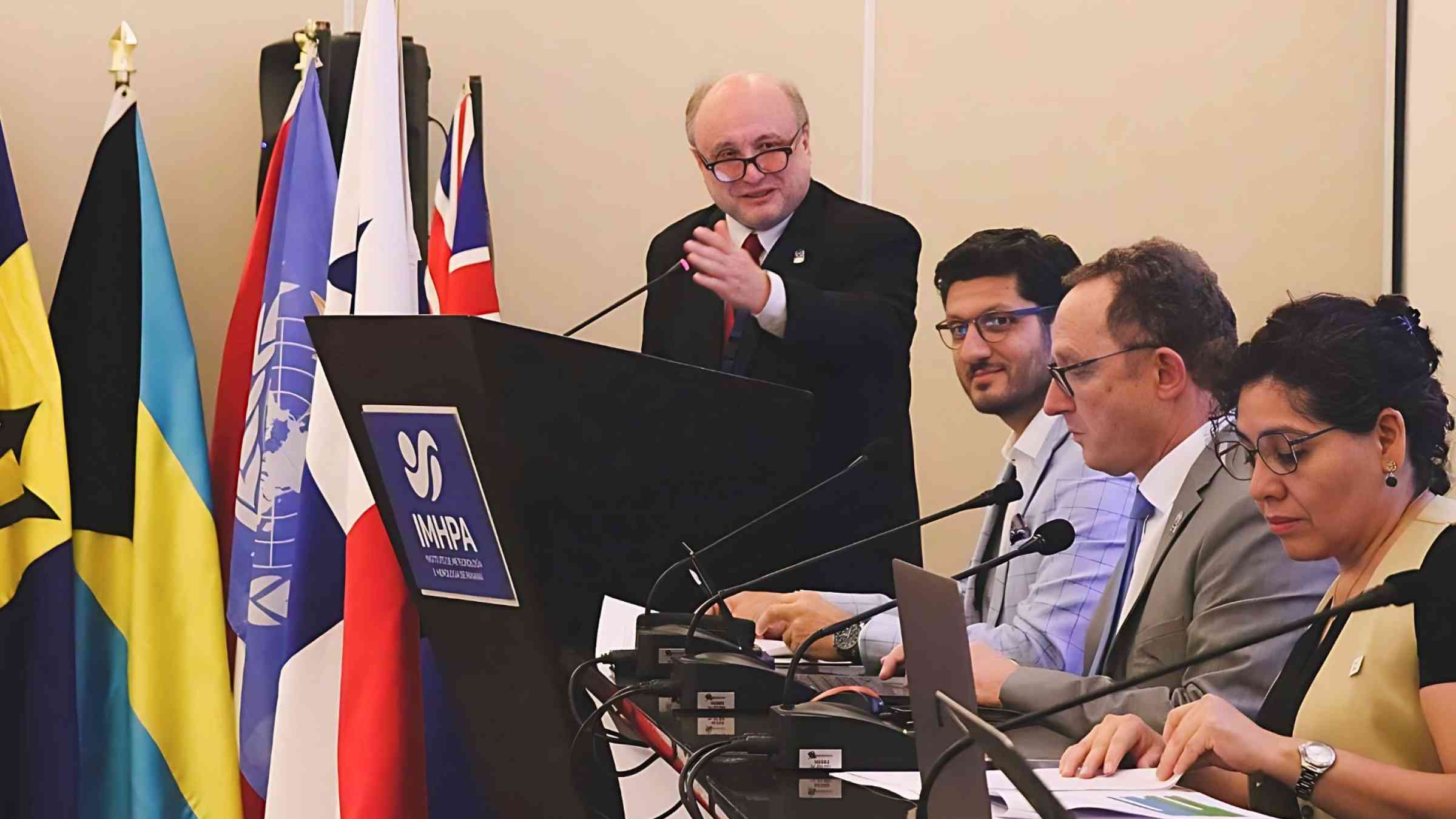Community engagement and its vital role in Early Warning Systems implementation

The need to strengthen early warning systems and bolster disaster prevention and preparedness cannot be overstated. As seen last March during the 46th session of the Hurricane Committee in Panama, against a backdrop of exposure and vulnerability, efforts are being intensified to harness meteorological expertise and strengthening the implementation of the Early Warning For All Initiative (EW4All).
EW4All is a global initiative launched in 2022 to ensure that all people are protected by early warning systems by 2027. It aims to reduce the impact of disasters and the vulnerability of populations through four pillars: disaster risk knowledge (led by UNDRR); detection, observations, monitoring, analysis and forecasting of hazards (led by the World Meteorological Organization); warning dissemination and communication (led by the International Telecommunication Union); and community preparedness and response capabilities (led by the International Federation of Red Cross and Red Crescent Societies).
The Hurricane Committee for North America, Central America and the Caribbean (WMO’s Regional Association IV) plays a pivotal role in advancing meteorological understanding and capabilities in the region. Through rigorous research, data analysis and forecasting prowess, the committee provides invaluable insights into the complexities of tropical cyclones and other weather-related phenomena, thus providing a better setting for the EW4All implementation.
Although technological advancements represent a critical aspect of EW4All implementation, challenges persist in reaching remote and marginalized communities. Technical infrastructure and communication networks must be strengthened to ensure timely, accurate, accessible and effective dissemination of early warnings.
“There are pending challenges to going the last mile. We are not reaching everyone, especially those lacking internet access, those in rural sectors, and indigenous communities. This is a challenge that must be addressed, so collaboration with local entities must be extended to reach the last mile and make this a reality”, explained Rodney Martínez, World Meteorological Organization (WMO) Representative for North America, Central America and the Caribbean.
Recent innovations in impact-based forecasting highlight the potential of merging meteorological expertise with community-focused approaches. By providing actionable information that resonates with local populations, impact-based forecasting empowers individuals and authorities to make informed decisions and take proactive measures to mitigate risks.
“We can have the best data available, which is, by the way, still an area of improvement in numerous domains, but we also need the right people to create the data, to collect the data, and to operate all the systems. And then to analyze and make the decision that a warning is needed”, said Cyrille Honoré, Director of Disaster Risk Reduction, Multi-Hazard Early Warning Systems Office and Public Services Branch of WMO. “You don't analyze satellite imagery or numerical weather prediction model outputs out of nothing. You need to be trained”, he added.
Moreover, as efforts to improve the technical aspects of early warning systems continue, it is essential to combat misinformation and ensure the accessibility and reliability of official communication channels. Collaboration with local authorities, media outlets, and community-based organizations is crucial to disseminating accurate information and dispelling rumors and false narratives.
“EW4All represents an unprecedented collaboration towards a common goal. We need as many sectors as possible to support this initiative throughout the region and the globe to ensure that communities and people everywhere are covered and protected by early warning systems in a way that they can engage at different levels and take action”, said Nahuel Arenas, Chief of the United Nations Office for Disaster Risk Reduction - Regional Office for the Americas and the Caribbean. “We need to emphasize people-centered and end-to-end Early Warning Systems as well as a multi-hazard approach, while recognizing the vital importance of focusing on climate-related issues, as our region is prone to a wide array of hazards. We have the responsibility to ensure that through the best of intentions we are not inadvertently creating new risks or minimizing the potential threats of simultaneous and cascading events”, he added.
By fostering meaningful partnerships with communities, early warning systems can be tailored to local contexts, responsive to community needs, and inclusive of diverse perspectives. Empowering communities to take ownership of their safety and resilience is not only a cornerstone of effective early warning systems but also a foundation for sustainable development.